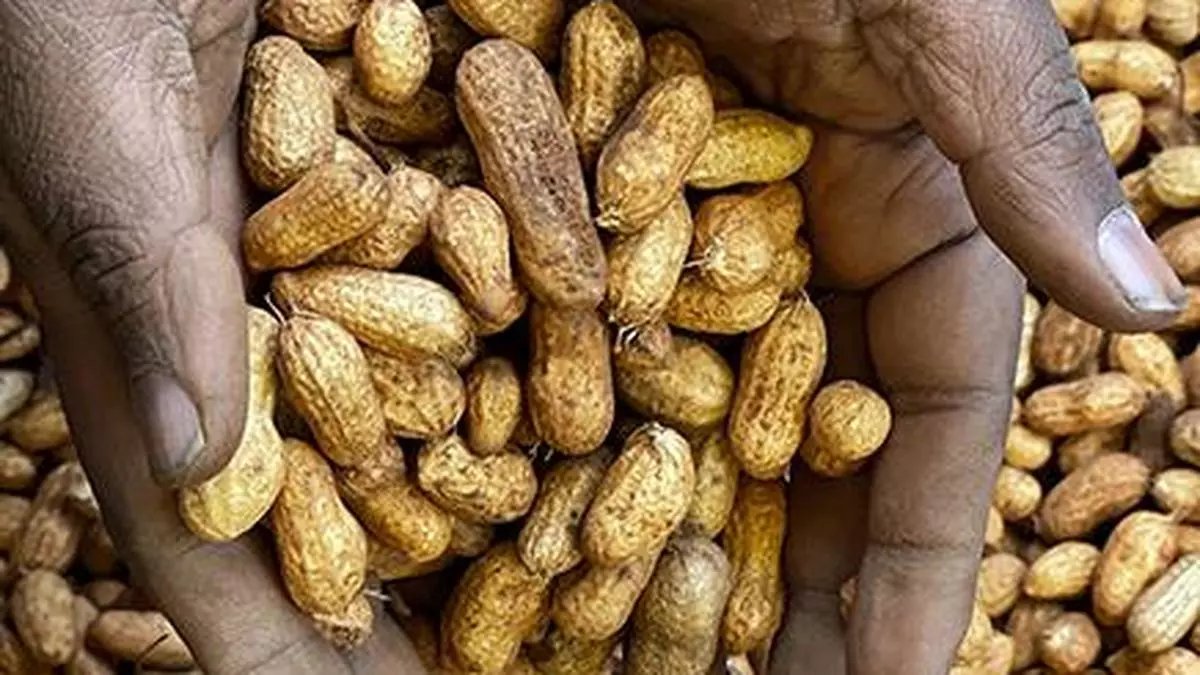For the first time since 2021, groundnut sowing in Gujarat has crossed 18 lakh hectares (lh) during the ongoing kharif season 2024. Lower yields from cotton crop, pink bollworm infestation and possible presence of fake Bt cotton seeds are luring more farmers to pick groundnut, experts say.
According to the latest data released by Gujarat’s Agriculture, Farmers’ Welfare and Cooperation department, groundnut sowing in Gujarat has crossed 18.82 lh which is not only 16 per cent more than the 16.21 lh sown during 2023, but is also the highest acreage in the last two years. During the 2022 kharif season, groundnut sowing stood at 17.63 lh, while in 2021 it was 18.87 lh. With kharif sowing still underway, the figures for groundnut is expected to rise further and end closer to the 20.65 lh seen in 2020.
“Lower yields from cotton crop, menace of pink bollworms and rising input costs from increased use of pesticides, are slowly pushing farmers to opt for groundnut. Secondly, farmers sowing cotton crop harvest in February-March, while those growing groundnut are able to harvest by Diwali and have an option to take a second crop,” said Sagar Rabari, former head of Khedut Samaj, an organisation of farmers in the State.
Khem Mahmud, a farmer from Galiyawad village in Junagadh district of Gujarat who shifted to groundnut crop this year, told businessline, “Last year I had sown cotton. I incurred losses after the crop was infested with pink bollworms. So this year, I had shifted to groundnut and sown the crop on one hectare. I expect to make some profit this year. Apart from pink bollworms, farmers like us also have to deal with fake Bt cotton seeds circulating the market.”
Cotton still is the king
Despite the tilt towards groundnut, cotton continues to have the highest acerage during this kharif season. Farmers have sown over 23.15 lakh hectares of cotton crop so far, which is 16 per cent less than last year when over 26.82 lakh hectares of cotton was sown in the State.
Despite Gujarat receiving more rainfall this monsoon, the kharif sowing stands 18 per cent less compared to the sowing area during the last three years. Till the end of July, the state received 23 per cent more rain. However, kharif sowing has happened only on 69.7 lh. This rate of sowing is about 18 per cent less than the 85.6 lh of average area sown during kharif season in the last three years.
Another major shift seen this kharif season is farmers sowing more quantities of soyabean. This year, the crop has been sown over 2.92 lh — 11 per cent more than last year. Experts say menace of pigs and blue bulls do not affect soyabean crop as these animals avoid feasting on it. Apart from this, stable prices, lesser requirement of labour when compared to cotton crop, are also making soyabean more popular among farmers.



